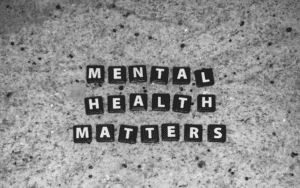Introduction To Mindfulness-based Cognitive Therapy for Depression

Mindfulness-based cognitive therapy for depression is one of the most sought-after psychotherapies for depression nowadays. This type of psychotherapy relies mostly on self-help and treating depression through mindfulness and exercises like meditation, yoga, and deep breathing. Depression causes a person to lose interest in daily activities and the will to live their lives normally. Depression also gives rise to many other disorders that affect mental health like anxiety disorder, insomnia, and paranoia.
According to research, 21 million people are suffering from Depressive Disorder in the United States. This is a whopping number and proves that depression cannot be taken lightly. The statistics in India are even more alarming.
According to the World Health Organization, around 56 million people suffer from depression and 38 million people are suffering from stress-related disorders like anxiety disorder.
The good news is that the symptoms of depressive disorder and anxiety disorder can be cured with mindfulness-based cognitive therapy for depression. This type of psychotherapy ensures that the symptoms of these mental health disorders do not return even after the therapy is over.
In this blog, we will discuss MBCT therapy for depression in detail. Read on to find out more about this type of psychotherapy.
What is mindfulness-based cognitive therapy for depression?

Mindfulness-based cognitive therapy is a widely used treatment for mental health illnesses like depression, anxiety disorder, stress, etc. This type of psychotherapy is based on the principles of cognitive behavioral therapy and mindfulness. The patients are taught to observe their negative thoughts, emotions, and feelings with an open mind and accept such unpleasant feelings without judgment. At the same time, the patients are taught to be mindful of their actions. This helps the patients in understanding their thought patterns and reactions.
It is quite common for individuals with depression and anxiety to experience unpleasant and intrusive thoughts throughout the day. By combining cognitive behavioral therapy and mindfulness, individuals are able to manage their thoughts, emotions, and feelings in a positive and healthy manner.
What is cognitive behavioral therapy?
Cognitive behavioral therapy is a psychotherapy that is focused on improving the individual’s behavior in stressful situations. It also aims at improving your self-talk and regulating an individual’s emotions. The therapist teaches different coping strategies that a person can use when they face their triggers to anxiety or depression.
What is mindfulness?
Mindfulness is a practice in which the individual is aware of their thoughts, feelings, emotions, and actions in any situation. In simpler words, it means living in the present moment. Mindfulness helps an individual become aware of their destructive thoughts and habits that may lead them into a downward spiral of anxiety and depression.
Mindfulness-based cognitive therapy for depression helps an individual become aware of their destructive thought patterns. Once an individual is aware of their thoughts, feelings, and emotions, they can take measures to correct the same and simply shift their focus to more fruitful activities.
What are the benefits of mindfulness-based cognitive therapy for depression?

There are several benefits of mindfulness-based cognitive therapy for depression. The main goal of this type of psychotherapy is to make the patient aware of their thoughts, feelings, and emotions and teach them to accept the same without judgment. It is quite common for people with anxiety and depression to lose themselves in their sabotaging thoughts. Mindfulness improves the mental health and overall mood of the patient in such cases.
Increased Support
Mindfulness-based cognitive therapy is done in a group setting. This ensures a sense of community and belongingness within the group. People with depression feel quite alone in their journey of healing. Therapy sessions in a group provide support from like-minded individuals who are going through the same ordeal. As a result, there is a lesser risk of the patient relapsing back into depression after the therapy sessions are over.
Decreased Stress Levels
Mindfulness-based cognitive therapy sessions help in overcoming stress and anxiety that are often felt during depressive episodes. The primary pillar of mindfulness-based cognitive therapy for depression is mindfulness and teaching the patient to be aware of the present moment. This automatically reduces the stress levels as the patients learn to refrain from oscillating between the past and the present.
Improved Regulations in Emotions and Emotional Stability

In mindfulness-based cognitive therapy for depression, the therapist teaches the patients to observe their thoughts, feelings, and emotions as fleeting through the technique of mindfulness. A good therapist will encourage the patient to observe their negative thoughts but not react in a negative manner. As a result, the patients become more emotionally stable and resilient. They become emotionally stable and can control their emotions in stressful and triggering situations.
It is often observed that episodes of depression or panic attacks are caused by external factors as well. In such cases, mindfulness-based cognitive therapy helps the individuals in grounding themselves and focusing on what is important in the present moment.
Prevention of Relapse After Therapy is Over
Depressive disorder is a recurring mental health illness in many patients. Episodes of relapse can often be traced back to the patients facing their triggers or depressive thoughts. Since mindfulness-based cognitive therapy changes the patient’s perspective of their negative thoughts, feelings, and emotions, there are fewer chances of a relapse after sessions of MBCT therapy.
By the time the MBCT therapy sessions are over, if the patients have such thoughts again, the patients learn to distance themselves from negative and sabotaging thoughts. They learn to not associate themselves with such thoughts or let these thoughts define them.
Treats Other Mental Health Related Illnesses

Mindfulness-based cognitive therapy for depression is not used solely for treating the symptoms of depression but for other mental health disorders as well. This type of psychotherapy is used for treating many disorders like addictions, anorexia nervosa, bulimia nervosa, binge-eating disorder, and anxiety disorder.
Disorders affecting mental health stem from traumatic events, unpleasant memories, overthinking, or having recurring negative thoughts. Mindfulness-based cognitive therapy works towards helping the patient recognize and analyze their thought patterns and accept them without judgment. This helps the patient in shifting their focus to coping strategies rather than being stuck in their emotional turmoil. As a result, MBCT therapy treats the symptoms of many mental health disorders.
Frequently Asked Questions
1. What is mindfulness-based cognitive therapy for depression?
Mindfulness-based cognitive therapy for depression is a type of psychotherapy where the principles of cognitive behavioral therapy and depression are combined to treat the symptoms of depression. The therapist encourages the patients to observe their negative thought patterns, feelings, and emotions without judgment. The patients are also taught to practice mindfulness in their daily lives.
2. How does mindfulness-based cognitive therapy help with depression?
Mindfulness-based cognitive therapy for depression teaches the patients to become self-aware of their thought patterns. This helps prevent mental health illnesses such as depressive disorder as they can catch their negative thoughts before they turn into a depressive episode.
3. What are the benefits of mindfulness-based cognitive therapy?
There are several benefits of mindfulness-based cognitive therapy. It treats the symptoms of anxiety and depression. It also teaches individuals to be present at the moment and not get caught in a cycle of negative thoughts. As a result, patients who undergo this therapy come out as happier and emotionally strong individuals.
4. How does mindfulness-based cognitive therapy for depression differ from other types of therapy?
Mindfulness-based cognitive therapy combines behavioral cognitive therapy and mindfulness through various techniques and exercises. This type of psychotherapy focuses on helping individuals become aware of their thought patterns and accept them without judgment.
5. Is mindfulness-based cognitive therapy for depression suitable for everyone?
Although helpful in treating the symptoms of depression, mindfulness-based cognitive therapy for depression is not suitable for everyone. This type of psychotherapy requires a lot of effort and commitment as it takes place weekly for 2 hours. The therapist assigns you homework to practice mindfulness daily for at least 45 minutes. Therefore, individuals who cannot commit to these sessions for 8 weeks or put effort into practicing mindfulness should choose other types of psychotherapy.
Conclusion
The human brain is extremely complex and powerful. Homo Sapiens, as a species, have been able to withstand evolution and make progress in every field due to the power of their brain.
However, our brain is vulnerable to mental health issues. Disorders affecting mental health like depressive disorder, anxiety, stress, eating disorders, and addictions limit humans from performing to their true potential. Tragically, some people have taken their own lives due to their struggles with mental health illnesses.
Psychotherapies like mindfulness-based cognitive therapy for depression are a boon for people struggling with their mental health. This type of psychotherapy encourages people with anxiety and depression to accept their negative thoughts and emotions and deal with them healthily.
MBCT therapy for depression is a solution to many mental health illnesses. With commitment and effort from the patients, it can transform overthinking and anxious patients into confident and happier individuals.
















